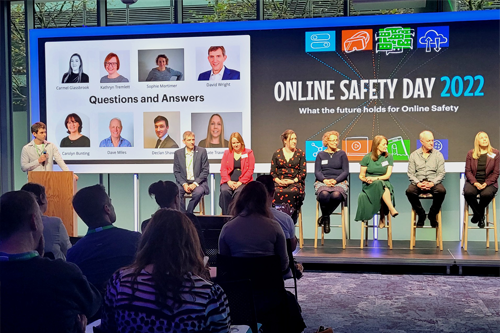South West Grid for Learning
Developing leading practice to protect people from harm online
South West Grid for Learning (SWGfL) has worked for over 20 years to improve online safety awareness, advising schools, public bodies and technology industries on correct practices and policies for keeping children and young people safe online.
 Online safety rapidly became an area of concern as advances in technology opened up opportunities for harm on a wide scale. With increased internet use came the need to limit the detrimental impact that technology can have on individuals. Schools in particular quickly needed to factor in an area of safeguarding where there was very little guidance or support.
Online safety rapidly became an area of concern as advances in technology opened up opportunities for harm on a wide scale. With increased internet use came the need to limit the detrimental impact that technology can have on individuals. Schools in particular quickly needed to factor in an area of safeguarding where there was very little guidance or support.
SWGfL started in 2000 with the goal of ensuring all 2,438 schools across the South West of England had safer internet connections, and that inappropriate and dangerous content was filtered out. From this work, it wrote appropriate filtering and monitoring definitions that would go on to set the standards for how all schools should operate.
It moved on to helping schools take an active approach towards improving online safety standards while also incorporating digital development into the school curriculum. The creation of its 360Safe free online safety self-review tool and ProjectEVOLVE, a free digital education toolkit, aimed to give any UK school the opportunity to independently improve, while consistently reaffirming what the appropriate benchmarks and goals were for appropriate online safety standards.
360Safe is being actively used by 15,500 schools throughout the UK, and the most recent data has shown that the vast majority of schools now have an effective online safety policy in place as a direct result. ProjectEVOLVE is being used by a third of schools and 50,000 professionals who are actively bringing online safety discussions into UK classrooms.
Since 2011, SWGfL formed the UK Safer Internet Centre with ChildNet and the Internet Watch Foundation, from which sprang the Professionals Online Safety Helpline and the Revenge Porn Helpline. Staff working on the Revenge Porn Helpline have removed almost 300,000 intimate images from the internet.
The charity now runs four helplines for members of the public and professionals that work with young people and uses the data from these calls to identify topics and trends for further tools and training. It operates nine websites as well as various apps and services including Swiggle, a child-friendly search engine used as the default by thousands of schools; Assisted Monitoring, software that monitors students’ online behaviour, and StopNCII.org, which helps to prevent the non-consensual sharing of intimate images. And it has trained 27,000 professionals in how to better protect young people online.
Nicola Toyer said: “I really liked this, they’re having a massive impact across the UK.”
Ruth Davison said it was “such essential work, particularly in schools”, and added that the Revenge Porn Helpline has been a lifeline to thousands of people affected by harassment and abuse around nude images.
“I think they’re brilliant, very collaborative and positive as a digital tech abuse charity.”
CC Reg no. 1120354

